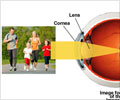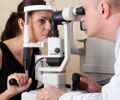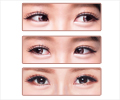A new study from University of Oklahoma Department of Ophthalmology has found that daily use of medication called pirenzepine gel can slow down myopia progression in children, say researchers.
A new study from University of Oklahoma Department of Ophthalmology has found that daily use of medication called pirenzepine gel can slow down myopia progression in children, say researchers.
Myopia or nearsightedness is a condition in which focus on near objects is good, but distant objects appear blurry. Caused by a problem with the length of the eyeball or the curvature of the cornea, myopia gets worse over time in many children.In the study led by Dr. R. Michael Stiatkowski of Dean McGee Eye Institute/University of Oklahoma Department of Ophthalmology, children with myopia were randomly assigned to treatment with pirenzepine gel or an inactive placebo gel. All children initially had "moderate" myopia, with an average refractive error of about -2.00 diopters.
Over a year of treatment, the team found that the average increase in myopia was significantly less for children using pirenzepine.
The new study presents the final results in 84 patients who continued treatment for a total of two years: 53 with pirenzepine and 31 with placebo.
Although myopia worsened in both groups of children, the rate of progression was slower with pirenzepine.
At the end of two years, myopia increased by an average of 0.58 diopters in children using pirenzepine compared to 0.99 diopters with placebo.
Advertisement
Treatments to slow worsening myopia could also have important quality-of-life benefits.
Advertisement
The study appears in the August issue of the Journal of AAPOS (American Association for Pediatric Ophthalmology and Strabismus).
Source-ANI
SRM












